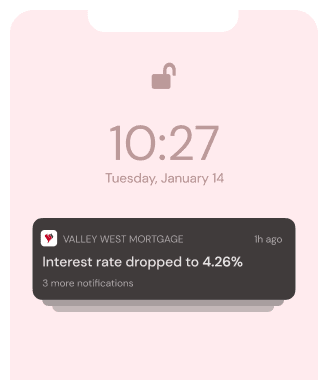Your Purchasing Power
Who’s your favorite X-Men character? Wolverine? Storm? Professor X? What makes that character your favorite? For some people it’s the character’s courage, or perhaps their good looks, or their intelligence. My favorite mutant character is Mystique and what makes her my favorite is her superpower. Mystique is a shape shifter, meaning she can change her body and her voice to look like anyone she chooses. Did you know that outside of the comic book world there are real-life, everyday people with super powers? You are one of them. This article is going to walk you through tapping into and applying your purchasing power.
Though I’m sure you’re not a mutant like the characters of X-Men, your purchasing power is a great power to exercise when you’re looking to buy a home. Your “Purchasing Power” is the ability and the flexibility to get the home you want. Your purchasing power can be increased by applying the following practices:
Decrease Your Debt
Though the ultimate goal is to eliminate your household debt all together, depending on the amount of expenses you have, you may not be able to eliminate all of your debt all at once. In the meantime, decrease your debt by eliminating what you can. Pay off any outstanding medical bills. Return those overdue books to the library. Most importantly, stop using your credit cards. The minute you decide that you want to purchase a home, stop all usage of credit. Every time you swipe that card, you’re swiping yourself into debt.
Increase Your Credit Score
Similar to how eliminating all of your debt will take time, improving your credit score will take time too. It’s easy for credit scores to drop, it’s a little tougher to bring them back up. Every 30 days the credit bureaus update with any new financial information from the previous month. That means there’s only 12 opportunities within a year for your score to go up (once each month). So each month you’ll have to make a conscience effort to change something for the better on your credit report. Remember, when credit does increase, it’s usually only increasing by a factor of roughly 1-15 points. Big events (like a delinquency or having an account go to collections) can change your credit score drastically, negatively hitting your credit anywhere in the range of 100 to 150 points so be sure to pay everything on time if not early.
Check Your Credit Report
When you do your application to purchase a home, your credit report will be pulled and lenders will evaluate how much money you can be trusted to borrow. Do yourself a favor and check your score before the lenders do. I read once that at least 5% of Americans have a major error on their credit report. This could be caused by something as simple as someone having the same name and birthday as you. You’d be surprised how many John Smiths were born on the same day. Check your credit report to dispute any incorrect information that could be hurting your credit score.
Add to Your Income
Another thing that lenders look for when processing your mortgage application is your debt to income ratio. This ratio compares how much debt you have to how much income you earn. It is calculated by dividing the total amount of your monthly expenses by your gross monthly income before taxes. The lower your DTI is, the more money lenders are likely to let you borrow. Increasing your income can also lower your DTI by adding to the income portion of your ratio. For example, if your monthly debt totals at $1500 and your gross monthly income is $3000, your DTI ratio would be .5 or 50%. On average lenders look for a DTI ratio of no more than 43%. If you were to pick up a second job that brings in an additional $2000 per month and you could raise your total income to $5000, your DTI would drop to 30%, a much more ideal percentage.
You have powers nestled deep within the financial center of your brain. It’s easy to tap into those powers by doing things like paying off debt and clearing up your credit. Your purchasing power gives you the flexibility to make broader decisions when it comes to purchasing. Purchasing power also means better borrowing opportunities and access to different types of loan programs. Increase your power today!
When doing your research always be sure to consult great sources. See the sources for this article below!
http://www.thetruthaboutmortgage.com/pay-down-your-debts-before-you-apply-for-a-mortgage-to-increase-purchasing-power/
http://budgeting.thenest.com/increase-purchasing-power-21057.html
http://www.investopedia.com/terms/p/purchasingpower.asp















